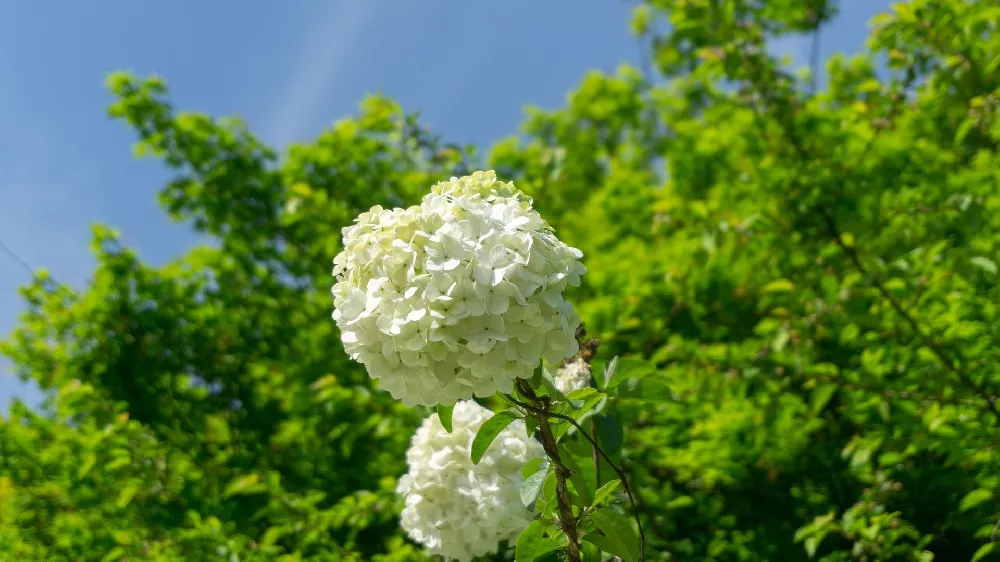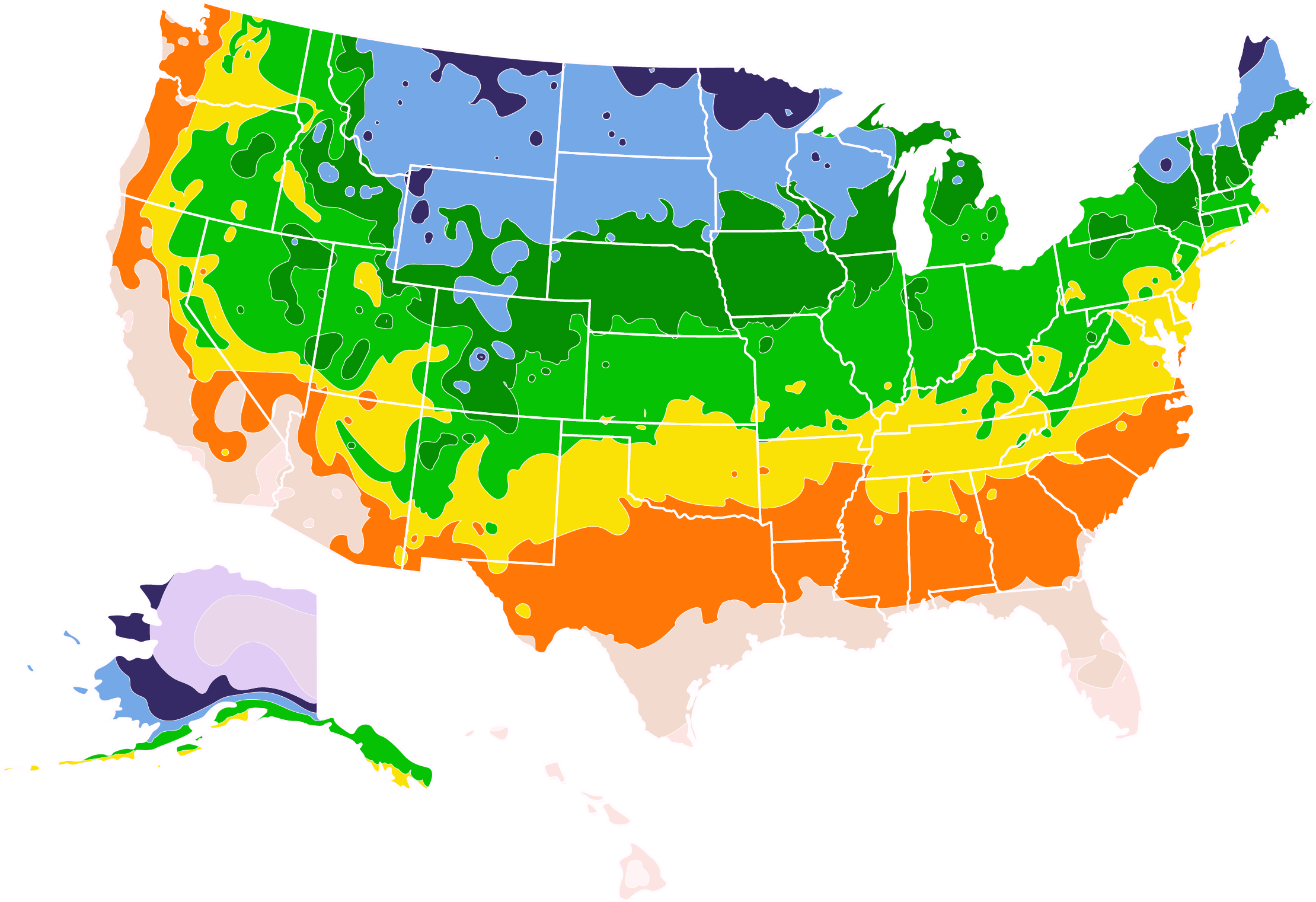Limelight Hydrangea Tree for Sale
- Ships in 1-2 days
- 1-Year Warranty Eligible
- Pots or accessories are not included unless specified in the product options.
Shipping Details:
Once your order is shipped, you’ll receive an email with a tracking number and estimated delivery date. Most orders ship immediately, but some items are seasonal and may only ship in spring or fall. These products are noted on the website.
For a unique and attention-grabbing beauty, look no further than the limelight hydrangea. This stunning member of the Hydrangea paniculata family never disappoints. It provides three full seasons of visual interest and delight in even the most northern climates. Other reasons to include at least one of these hardy hydrangea shrubs in your yard are:
- Giant blooms that can reach the size of a football or even a human head.
- Limelights are one of the easiest hydrangeas to grow.
- Once established, they will continue to impress for years to come.
Plant Care
Sunlight
While limelight hydrangea plants prefer full sun in cold climates, they should be planted in partial shade in warmer areas.
Watering
Limelight hydrangeas should generally be watered once or twice per week, though they may require more watering in hotter climates.
Fertilizing
A general purpose 10-10-10 fertilizer works well with limelight hydrangeas.
Planting and Care
Planting instructions
Limelight hydrangeas are cold-hardy and drought-resistant and will tolerate a wide range of conditions. In cooler climates, choose a sunny spot protected from high winds. Plants grown in warmer areas appreciate sites shaded during the hottest hours of the day. Dig a hole two times the width of your plant’s root ball and the same depth. Your hydrangea is not picky about soil type. When you place the plant into the hole, the top of the plant’s base should be slightly above the hole’s edge. Mix the ground soil with a potting mix and backfill the hole halfway. Fill the void with water and let it drain before finishing the backfill. Tamp the soil down gently and water again. You should also make a water catching berm around the root ball in order to keep water from rolling away and eroding your planting mound.
Watering and nutrients
Limelight hydrangeas tend to be okay without much extra watering. They are drought-resistant but may have a droopy appearance if there are too many dry days in a row. A deep watering once or twice a week keeps them perky and upright. In hotter climates or areas with a lot of sunshine they will need more frequent waterings. Light mulching can help retain moisture in dry conditions. Hydrangeas benefit from light feedings of a flower or woody shrub fertilizer in spring and summer. They also enjoy a layer of composted manure in the fall to promote healthy roots.
Pruning
Yearly pruning can help keep your hydrangeas healthy and productive. Prune in late winter, when the plant is dormant, or early spring before buds emerge. Trimming the plant back can help encourage growth — the most common practice is to cut back to about two to 10 inches above the previous year’s cuts.
Pests and diseases
Aphids and mites are the most common pests that visit hydrangeas. They are usually a mild annoyance, not a serious threat. Hydrangeas are susceptible to a few diseases. These include bacterial wilt, bud blight, leaf spot, mildew, and rust. Avoid these issues by watering from the bottom. Encourage airflow throughout the interior branches to decrease decay and damp areas. Also, cleaning leaf litter from the area around the base of the plant is another effective way to ward off pathogens.
Harvesting
Hydrangea flowers are a favorite cut flower. They also showcase beautifully in dried floral arrangements. From late summer to mid-fall, your limelight hydrangea will be full of huge blooms that vary in color. Lime green is the most notable shade. But conditions and the time of year can turn the flowers cream, white, pink, or even light yellow. It is easy to harvest branches or flowers with gardening shears or clippers. Either place cut stems into tall vases with water or hang the blooms to dry. The best dried flowers are from blooms that have been allowed to mature fully.
FAQs
Can limelight hydrangea trees be grown in containers?
Limelights grow to about six feet high and six feet wide. They will adapt to containers and make excellent patio specimens. They also excel as a flowering hedge plant when planted about seven feet apart in a row.
What is the best spot for limelight hydrangeas?
Your hydrangeas will bloom best when they receive at least partial sun. When grown in cooler northern climates, choose a sheltered spot with full sun. Hydrangeas need shaded relief during hot sunny days.
What is the best time of year to plant my hydrangeas?
Early spring or fall are the best times of the year to plant or replant hydrangeas. They are either coming out of dormancy or going into it. Cooler temperatures allow the hydrangea to concentrate on its root system and get established before extreme weather hits.
Can I propagate cuttings from my hydrangea?
Using branch cuttings is an easy way to propagate hydrangeas. Cut a six-inch piece with no flowers and dip it into rooting hormone powder. Plant in a light mixture of perlite and potting soil and water deeply. Create a high-humidity environment for your cuttings. Simply place a plastic bag over the pot or container. It helps to prop the bag up with sticks to keep it from making contact with the branch. Keep it moist while the branch forms roots (usually three weeks).
Compare Similar Products
Customer Reviews
Perfect! It came in beautiful!









